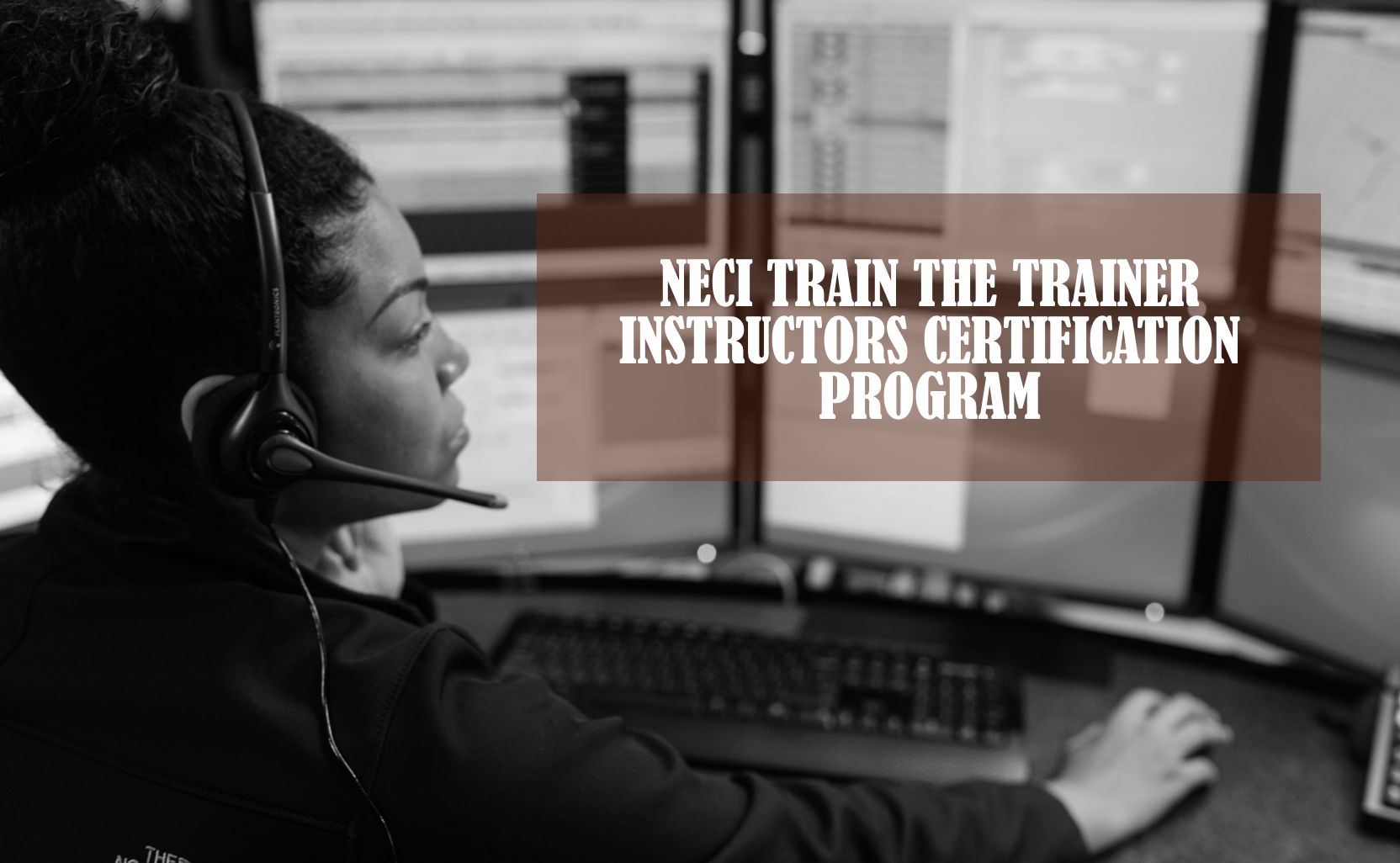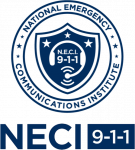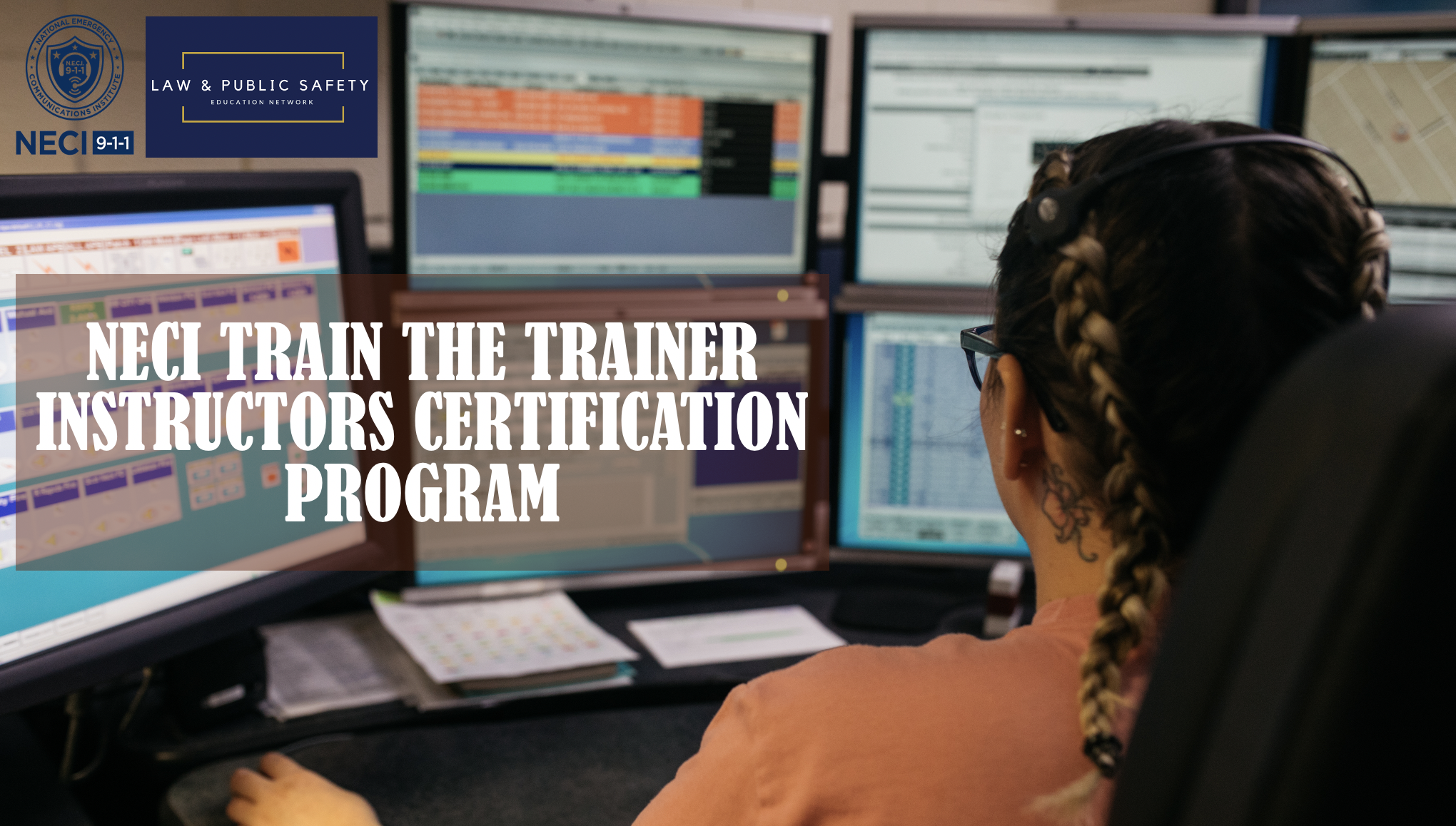The NECI Instructor Certification Program is designed to prepare qualified public safety professionals to effectively teach the 47-Hour Basic Telecommunicator Course. This program equips instructors with the knowledge, skills, and resources necessary to train and mentor the next generation of 911 telecommunicators.
Participants will learn proven instructional techniques, adult learning principles, and facilitation strategies to deliver engaging, high-quality training in alignment with NECI standards. The program also emphasizes professional ethics, evaluation methods, and classroom management, ensuring that each instructor can confidently guide students through the demanding and rewarding field of emergency communications.
Upon successful completion, certified instructors will be authorized to teach the NECI 47-Hour Basic Telecommunicator Course, which provides foundational training in call handling, radio communications, emergency medical dispatch protocols, stress management, legal considerations, and the essential skills needed for competent 911 service delivery.
Key Program Components:
-
Instructor development and adult learning methodology
-
Effective use of NECI curriculum and materials
-
Evaluation, testing, and feedback techniques
-
Maintaining professionalism and credibility in the classroom
-
Preparing telecommunicators for real-world operational demands
Outcome:
Graduates of the program will receive NECI Instructor Certification, enabling them to teach the 47-Hour Basic Telecommunicator Course and contribute directly to building skilled, resilient, and mission-driven 911 professionals.





